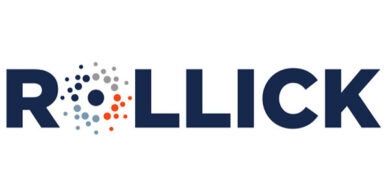Propane-fueled equipment, propane autogas vehicles can empower OPE dealers
Increased sustainability, easy refueling resonate with commercial lawn care companies
By Brian Feehan
Meeting customer needs has always been a prime focus for operators of commercial lawn and landscape companies. In recent years, customers have shown an increased interest in working with businesses that offer sustainable solutions. For this reason, operators are looking to equipment dealers for both guidance and products that meet that need.
For dealers, the answer may be propane-fueled commercial lawn mowers and equipment. Studies show propane-fueled mowers reduce greenhouse gas emissions by almost 50 percent compared with gasoline-fueled counterparts, and carbon monoxide emissions by more than 80 percent. Those low emissions mean work continues during pollution advisory periods when use of gasoline-fueled mowers is limited or prohibited. Plus, propane-fueled mowers meet or exceed all current U.S. Environmental Protection Agency (EPA) emissions standards and, if sold in California, the more stringent California Air Resources Board (CARB) emissions standards.
When it comes to propane-fueled mowers, lawn care companies have plenty of options. Models are available from more than a dozen industry-leading manufacturers, allowing lawn and landscape company operators to quickly tap into their considerable sustainability and operational benefits and utilize the propane refueling infrastructure already in place. Operators can also consider propane-fueled handheld equipment such as string trimmers.
Propane-fueled commercial lawn care equipment
Also known as liquefied propane gas, LP-gas, or simply LP, propane is nontoxic, colorless, and virtually odorless; an identifying odor is added so the gas can be readily detected. Propane cylinders of varying capacities are mounted horizontally on propane-fueled mowers. Most cylinders are for vapor service only, and include a liquid prevention device (LPD) attached to the end of the vapor tube, along with an overfill prevention device (OPD). These cylinders are mower specific, even though they might look similar to propane cylinders used for forklifts. What makes them different is a left-hand connection and a specific collar that indicates mower use only, helping ensure commercial lawn and landscape companies use the proper equipment.
Two types of fuel systems are available for propane-fueled commercial mowers — liquid injection and vapor injection. Equipment dealers who understand the fuel service requirements of available models can assist commercial lawn and landscape company operators in identifying the mower and fuel system that best fits the needs of their fleet.
Many propane providers offer cylinder exchange programs to lawn and landscape companies. These programs usually include on-site installation of a cage to house cylinders. For larger volumes, a no-spill dispenser can be installed on site and used to refuel both mowers and vehicles like work trucks fueled by propane autogas.
Available equipment options
While some commercial lawn and landscape company operators are already asking questions about this growing trend, the opportunity to introduce many more operators to propane-fueled equipment exists for dealers. Either way, a dealer can position itself as an expert in this growing trend, and will reap the benefits when a purchase decision is made.
Following is a brief overview of propane-fueled mowers. Keep in mind, this list is just a start — contact manufacturers to gather further details about their full line of propane-fueled mowers or visit www.poweredbypropane.org for more information.
Ariens/Gravely: The Gravely Pro-Master XDZ 260H LP zero-turn mower features a 28-hp./992-cc Generac air-cooled V-Twin engine and uses twin 33.5-pound LP tanks.
Cub Cadet Commercial: The TANK S LP zero-turn mower utilizes an 852-cc or 999-cc Kawasaki engine powered by liquid propane.
Dixie Chopper: The Xcaliber Propane zero-turn mower is fueled by two 40-pound propane cylinders and a 990-cc Generac LP engine.
Exmark: The Lazer Z Advantage Series zero-turn mower is powered by a 28-hp. Kawasaki V-Twin engine. Also available are the Turf Tracer and Turf Tracer HP propane-fueled walk-behind mowers.
Ferris: The IS 3100ZP zero-turn mower features an 895-cc Briggs & Stratton Vanguard Big Block V-Twin engine with vapor-draw fuel tanks.
Husqvarna: The PZ6029PFX zero-turn mower uses a Kawasaki FX Series 29-hp./852-cc engine. Optional 33-pound tanks hold about 14 gallons of propane, allowing all-day operation.
Scag Power Equipment: The zero-turn Dual-Fuel Turf Tiger is a dual-fuel powered commercial mower, offering both liquid propane fuel and gasoline operation. An optional propane-only conversion kit allows it to conform to local regulations, while the mower is also available with a Kohler propane-specific engine.
Schiller Grounds Care: The BOB-CAT Predator-Pro LP zero-turn mower uses a 30-hp. Generac engine designed to take advantage of propane’s higher octane level.
Snapper Pro: The S200xp zero-turn mower features an 895-cc Briggs & Stratton Vanguard Big Block V-Twin engine, offering up to 30-percent reduced emissions.
Zipper Mower: The front-mount Model STS-28LP uses a Kawasaki 28-hp. air-cooled OHV engine.
In addition to those mowers, propane-fueled handheld equipment is also available. For example, propane-fueled string trimmers produce no evaporative emissions or ozone-depleting hydrocarbons.
Fleet trucks fueled by propane autogas
Propane autogas is the leading alternative fuel in the United States and the nation’s third most common vehicle fuel, after gasoline and diesel. In fact, according to the Energy Department, there are more than 270,000 on-road vehicles running on propane autogas across the United States, including buses, taxis, delivery vehicles, and other fleet vehicles. That provides an emissions reduction opportunity for equipment dealers that utilize a fleet of work trucks for pickups, deliveries and other uses. Fleet vehicles fueled by propane autogas emit 12-percent less carbon dioxide, about 20-percent less nitrogen oxide, and up to 60-percent less carbon monoxide than gasoline-powered vehicles. Plus, propane autogas burns cleaner in engines than gasoline and diesel, which results in longer engine life and reduced maintenance costs.
Purchasing brand-new work trucks fueled by propane autogas to replace existing conventionally fueled fleet vehicles is one approach that makes sense for fleet managers, since a variety of models from multiple manufacturers are available. Another approach is converting existing conventionally fueled fleet vehicles. Keep in mind that propane autogas aftermarket systems must meet federally imposed standards and be certified with the U.S. EPA. There are multiple aftermarket systems that meet these requirements and are available in a variety of vehicle makes and models, and installation should be performed by a trained mechanic to ensure the system is in proper working order. For more information about fleet trucks fueled by propane autogas, visit www.poweredbypropane.org.
Becoming a resource
Information is power. An equipment dealer’s knowledge of the wide variety of propane-fueled lawn care equipment currently available will offer valuable resources for commercial lawn and landscape company operators. In addition, share information about local propane providers’ cylinder exchange programs.
Ultimately, the trend toward propane-fueled equipment allows a dealer to be viewed as a resource. That can pay dividends both today and well into the future, as relationships with commercial lawn and landscape companies grow.
Brian Feehan is vice president of the Propane Education & Research Council (PERC). PERC was authorized by the U.S. Congress with the passage of Public Law 104-284, the Propane Education and Research Act (PERA), signed into law on Oct. 11, 1996. The mission of PERC is to promote the safe, efficient use of odorized propane gas as a preferred energy source.
AT A GLANCE
Propane-fueled equipment basics
Propane-fueled commercial lawn mowers are available from more than a dozen industry-leading manufacturers.
Propane-fueled mowers reduce greenhouse gas emissions by almost 50 percent compared with gasoline-fueled counterparts, and carbon monoxide emissions by more than 80 percent.
Availability of on-site refueling and propane cylinder exchange programs makes refueling easy for commercial lawn and landscape companies.
Propane-fueled string trimmers produce no evaporative emissions or ozone-depleting hydrocarbons.


